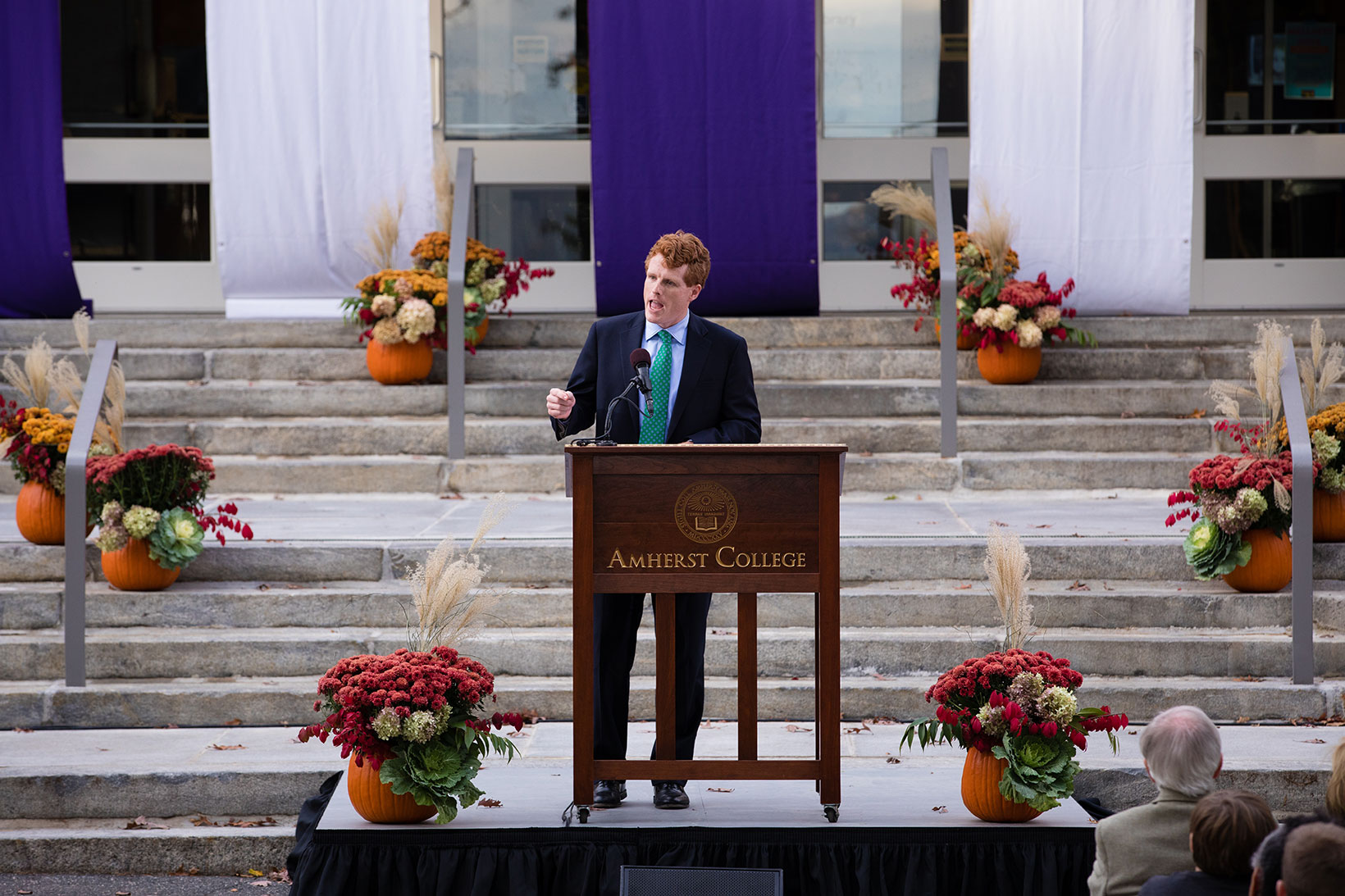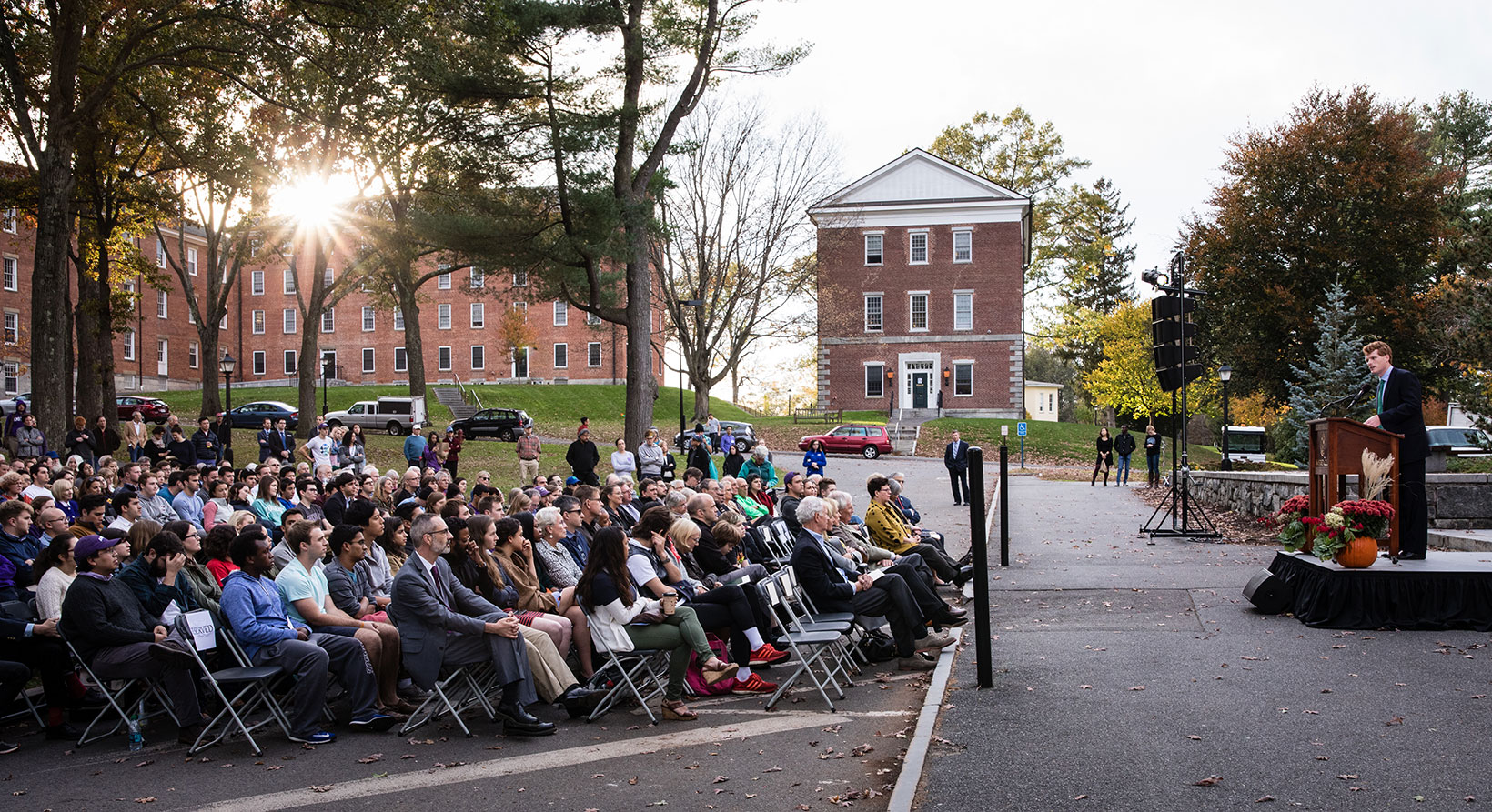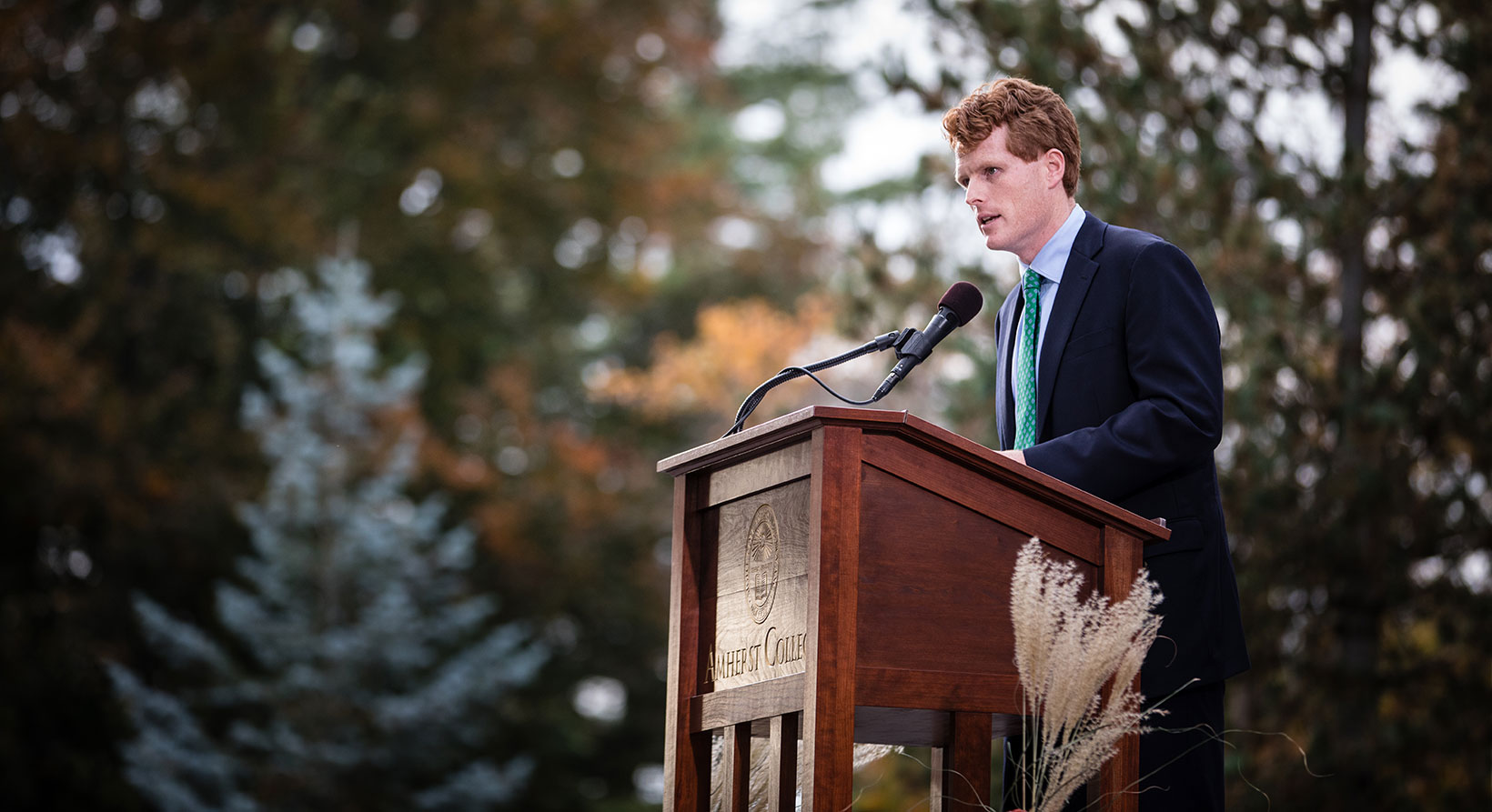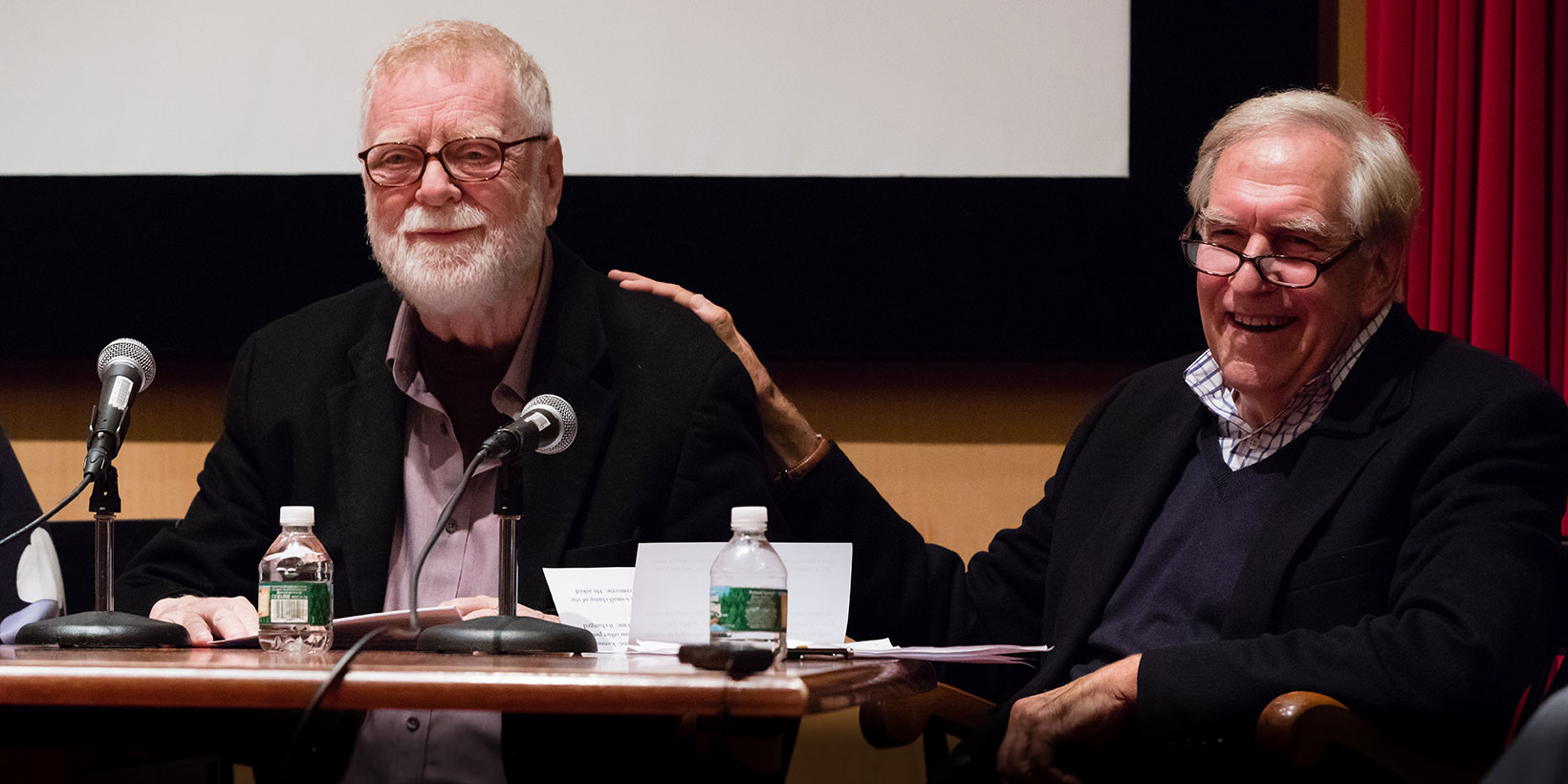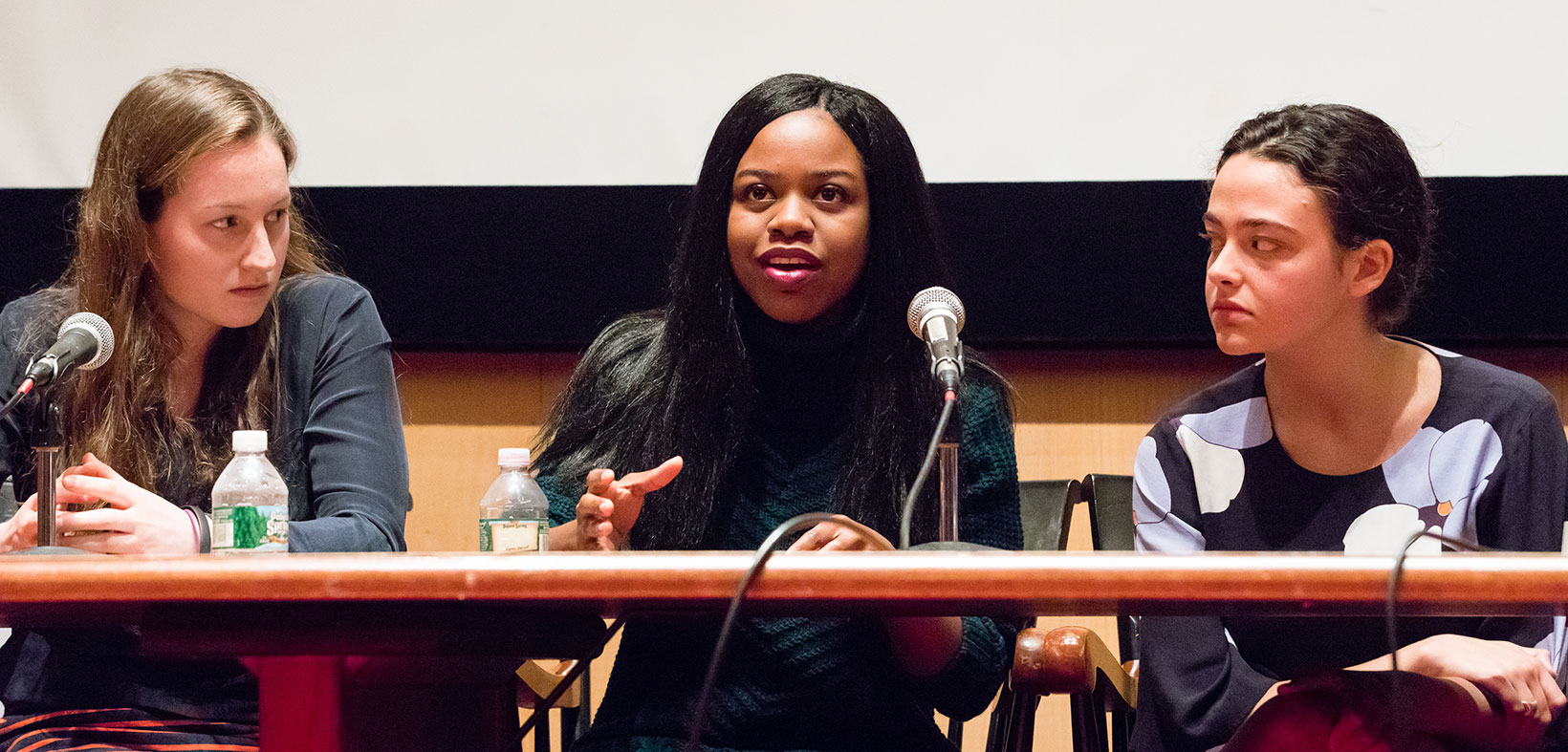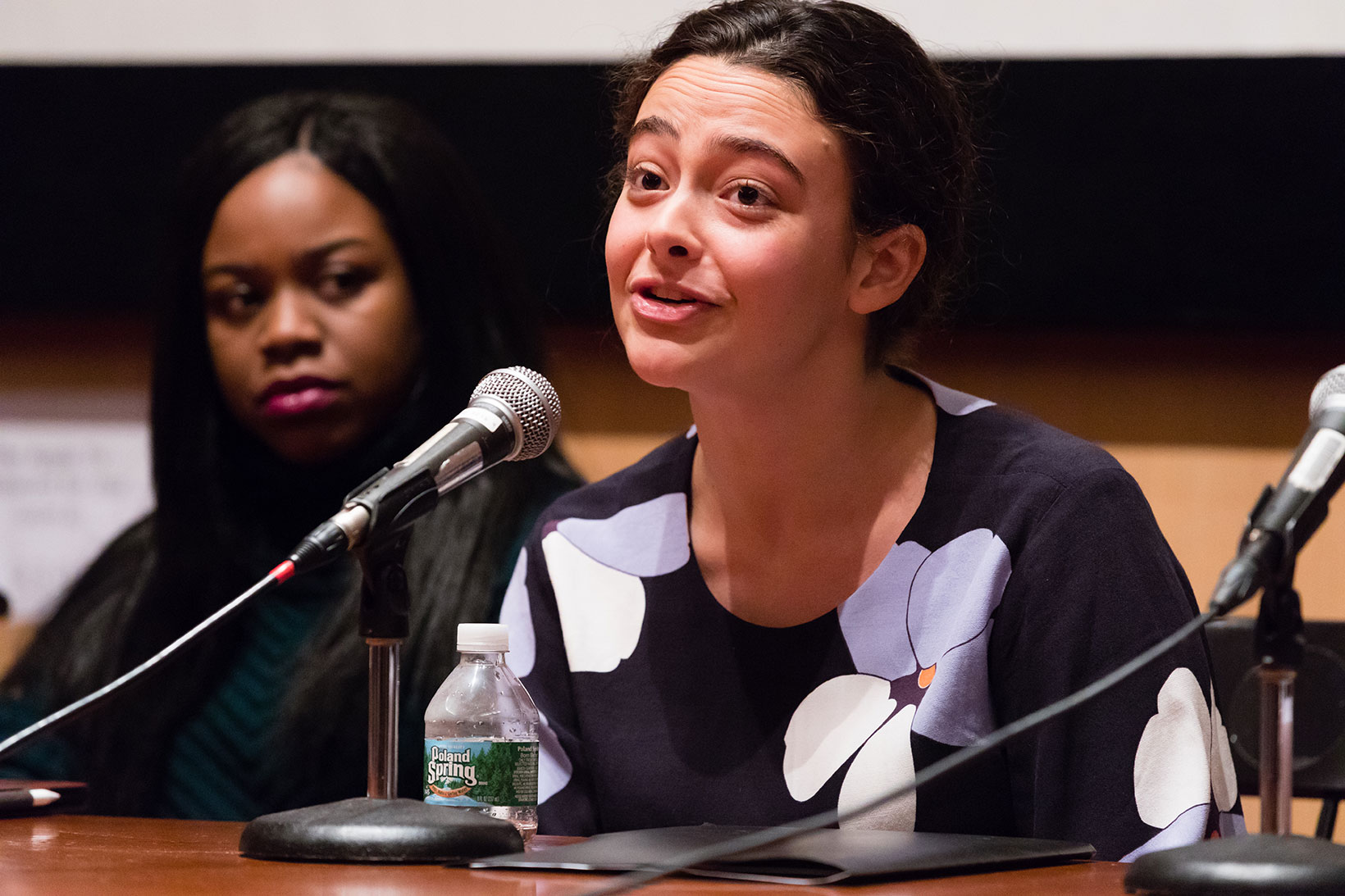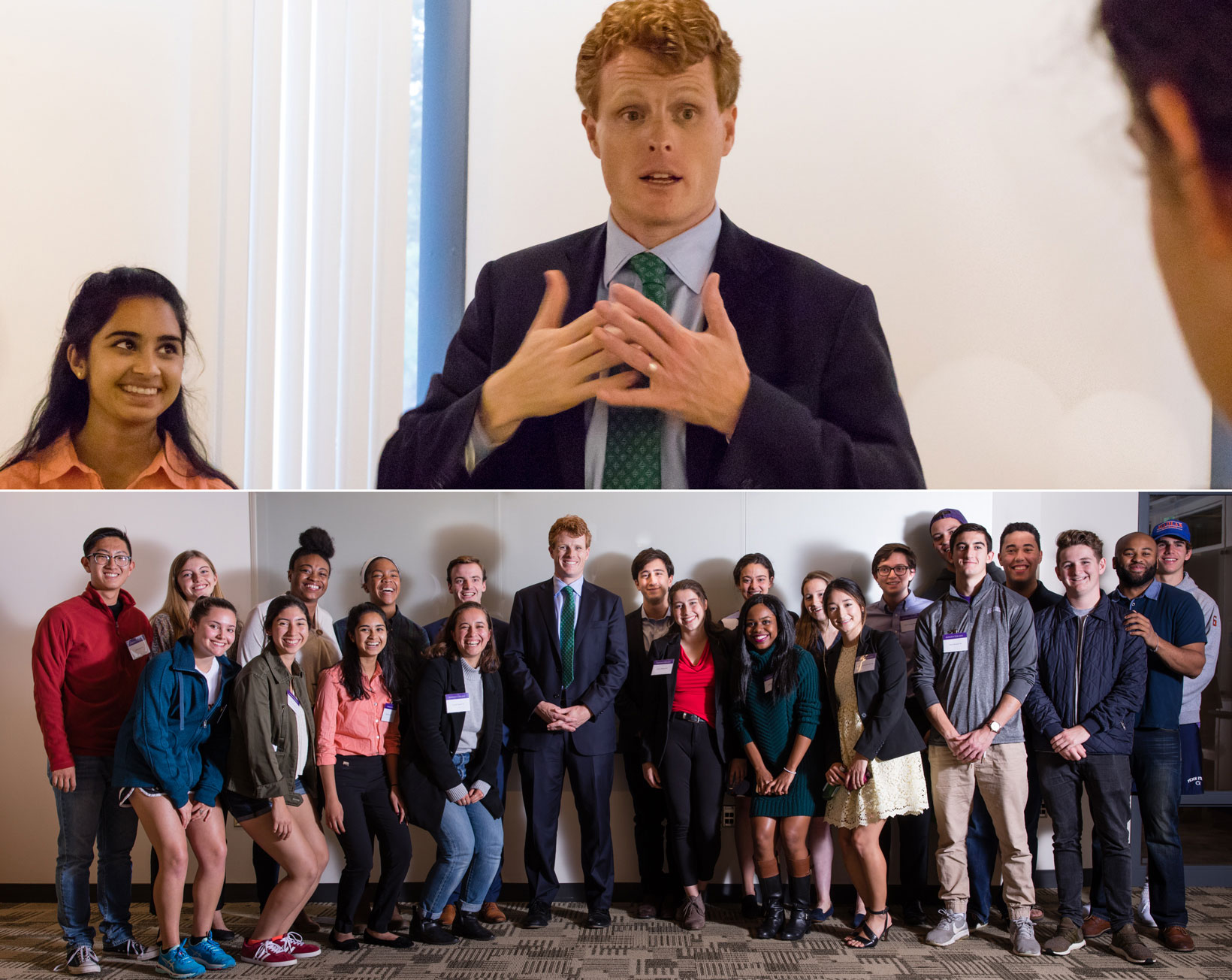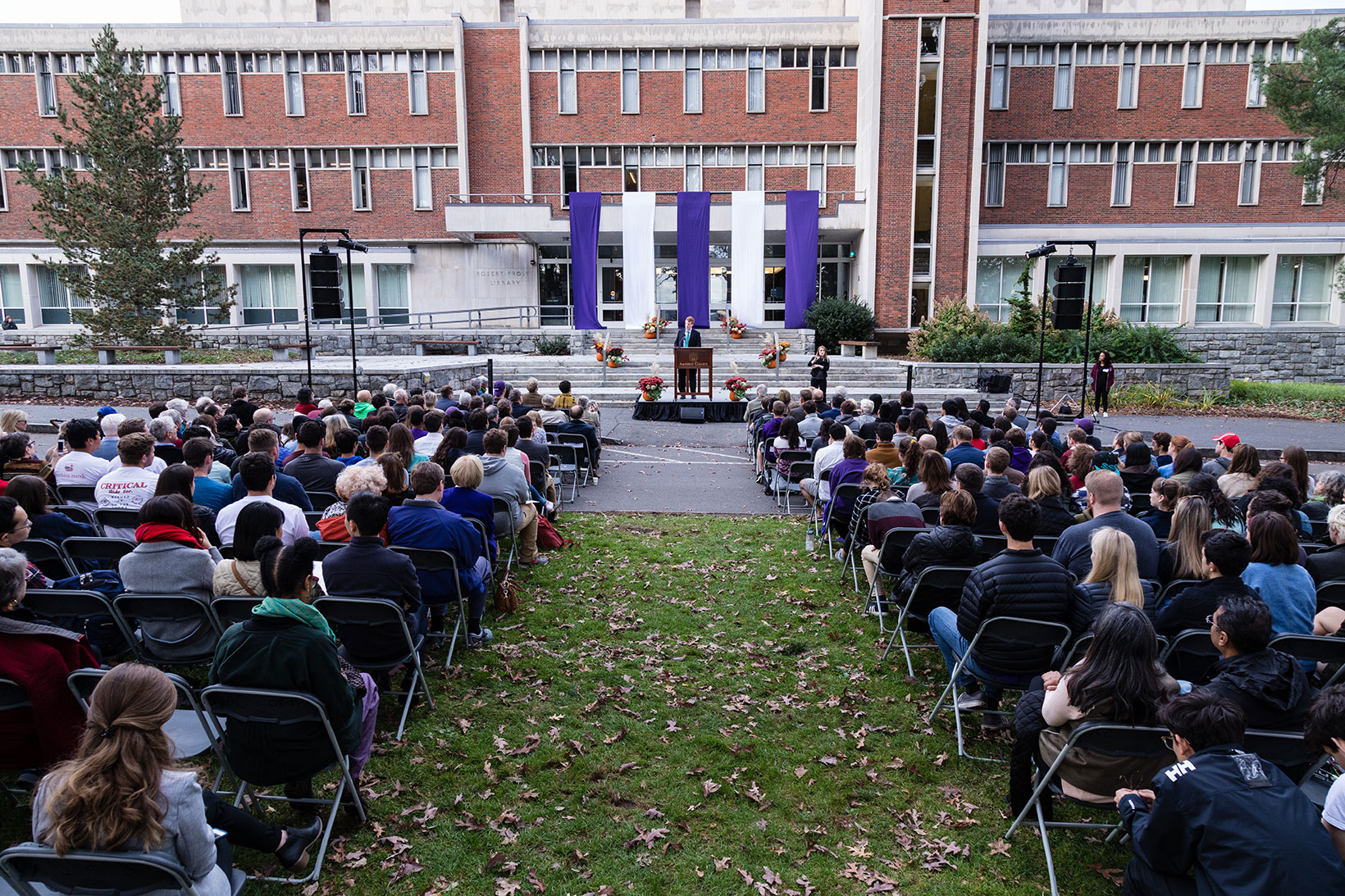We are “flawed and fragile,” he said, and sometimes “selfish and cruel,” but in the moments that matter, “we expand, we rescue, we protect, we survive. We give, we open, we heal and we help. That more than any law or leader, more than even the most powerful movements or moments in our history, that is what drives us towards progress, that is in fact the touchstone of our judgment.”
In introducing Rep. Kennedy, Amherst President Biddy Martin recalled the late president as an inspiration during her childhood. She noted that his eloquence, wit and commitment to equality offered her hope.
“Truth as the touchstone of judgment and art as the source of truth—how I wish these were the principles that guided more leaders today,” Martin said. “We all have a responsibility to make sure that it becomes true again, because in the absence of the poetic … politics kills. Poetry is not luxury. It is not an ornament.”
Before the keynote address, alumni, students and faculty reflected on President Kennedy's address. “I can't tell you how other people reacted that day, but I can tell you how it affected me: It changed my life,” said Ted Nelson ’64, sharing memories of that “beautiful fall day” that JFK came to speak.
Nelson was among a small group of students with whom President Kennedy paused to chat after the speech. He remembers the president asking about post-graduation plans, and then, after listening to their responses, telling them, “No, you're not. You're going to join the Peace Corps."
“Of course, we laughed in his face and we moved on,” Nelson recalled. “Three weeks later, JFK was assassinated. When I woke up the next morning, I knew I would answer Kennedy's call.” Nelson signed up for the Peace Corps, spending two years working in a Turkish village. He would later take a staff job with the Peace Corps in Washington, D.C. and spend years as an activist.
Following his keynote address, Rep. Kennedy similarly lingered to speak with Amherst College students, members of the Amherst Political Union and members of a student panel also offering their perspective of the 1963 speech.
Student panelists talked about the exhortation to the students of 1963 to lead lives of public service.
“When I first listened to President Kennedy's speech, I wanted to cry,” said Noor Qasim ’18. “It brought me such deep pleasure to hear words used so well.”
“Despite the darkness of his time, we remember President Kennedy as a distinguished leader, because he created a sense of hope,” said Dakota Foster ’18. “How do we do the same today? First, we must recognize that it is through unrest, conflict and discourse that opportunities for advancement and hope are born. Now we must push towards the progress that can follow turbulent times.”
Gabrielle Francois ’19 noted the lasting value of President Kennedy’s address, because it “insists that all graduates of schools like Amherst must recognize their responsibility to the public interest, in return for the opportunities given to us.”
In the faculty panel, Rhonda Cobham-Sander, the Emily C. Jordan Folger Professor of Black Studies and English, said she was struck by three aspects of President Kennedy’s speech: “Its timeless appeal, its critical self-reflexibility and its absence of adornment.
She noted that in his edits, JFK struck out the phrase, "When power intoxicates, poetry restores sobriety,” and replaced it with the now oft-quoted words: “When power corrupts, poetry cleanses.”
“There's much that he must have understood about power's corrupting influence, yet there also must have been much that he hoped his power, construed in its purest form as service, would achieve,” Cobham-Sander said. “In reaching for this poetic turn of phrase, JFK reaches for the possibility of his own redemption and he challenges us, his similarly empowered audience, to reach with him through service towards that possibility.”
Rep. Kennedy echoed JFK’s words, calling for a similar kind of redemption today.
“Poetry and politics may appear to live in distance, but excellence in either demands many of the same qualities,” Rep. Kennedy concluded in his keynote. “An embrace of human imperfection, a deep faith in the bonds of shared experience, an eye for opportunity that others might pass by and a belief that this life, this earth, this fleeting time that we share together is worth fighting as hard as we can to get it right.”
